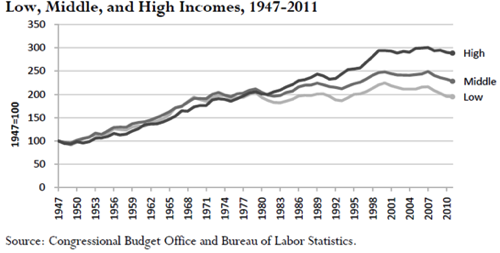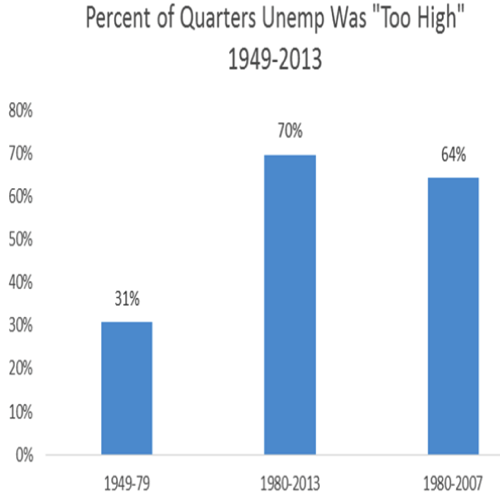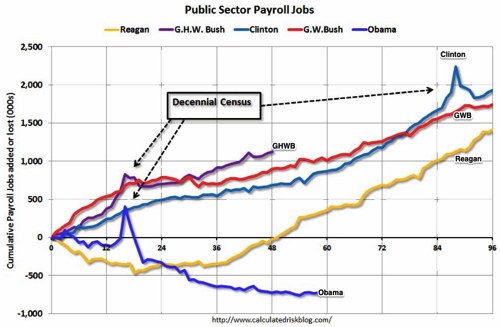Jared Bernstein: Inequality, Ezra, Paul, and the Unifying Theory:
There’s an interesting back and forth going on…. The President recently averred that inequality is the defining challenge of our time. Ez[ra Klein] argues that perhaps growth and unemployment better represent that challenge. Paul [Krugman] offers four strong reasons why, no, inequality is a fine candidate…. Well, here’s a unifying theory: demand-side policies that that significantly lower unemployment will also reduce inequality…. Over the period when labor markets were tight 2/3′s of the time, incomes grew together. Over the period when labor markets were tight 1/3 of the time, they grew apart…. So we don’t have to choose whether to fight weak demand or high inequality. Fight the former and you’ll help reduce the latter. And yes, it’s a bit of a strange discussion given that the political system is fighting neither, though that’s not entirely true. Sub-nationally, there’s stuff going on here…




